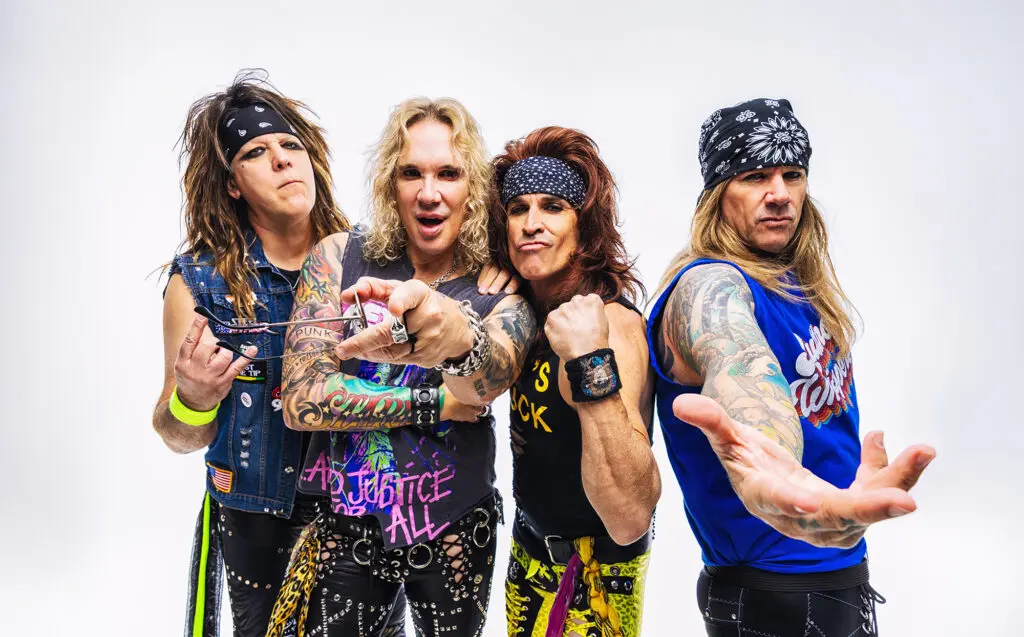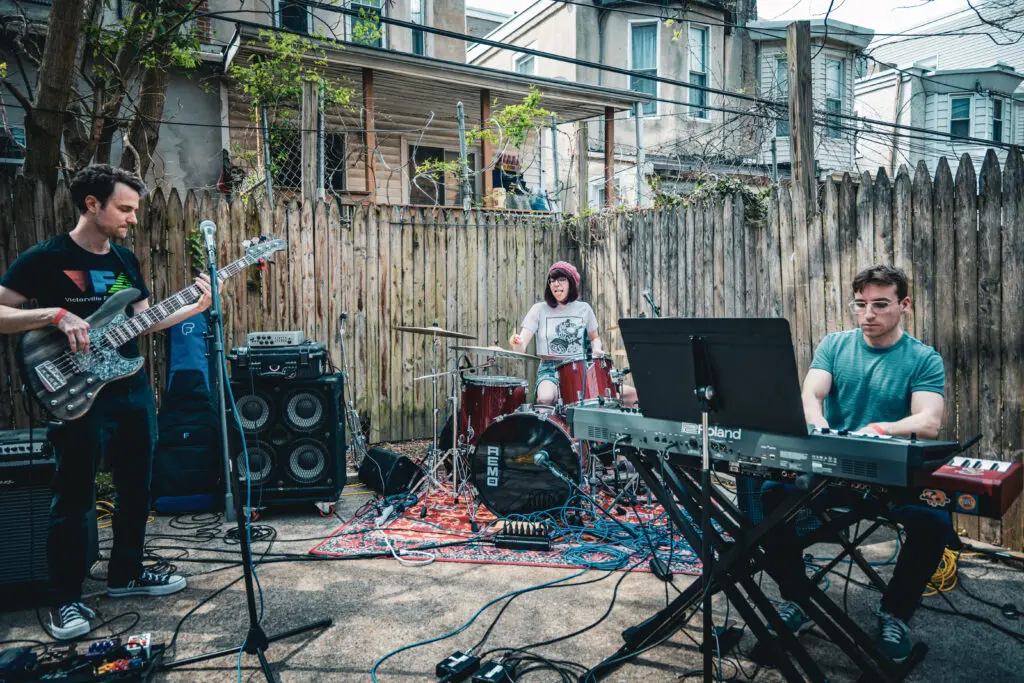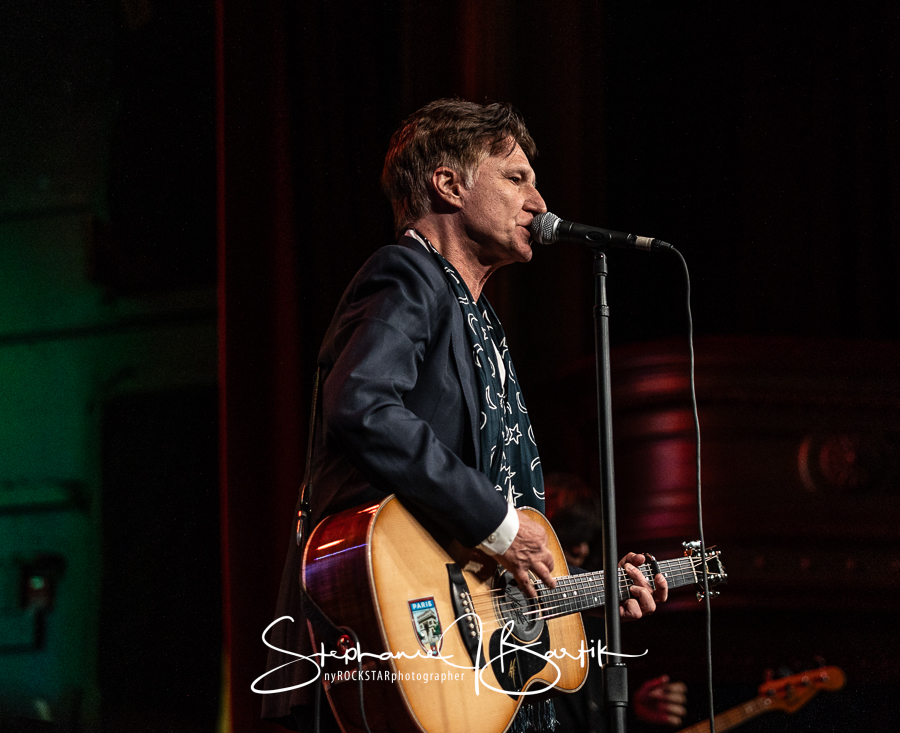Chris Thile, His Mandolin, and Some Knights to Remember
Written by Staff on October 21, 2023
Chris Thile, His Mandolin, and Some Knights to Remember, by Niki Kaos.
The Troy Music Hall Chromatics Concert Series is knocking it out of the park again. Wednesday, October 25th at 7:30, The Knights and Chris Thile bring an innovative and diverse program of contemporary classical music arranged for the unique combination of mandolin, voice, storytelling, and orchestra.
Familiar with Thile’s past projects, ranging from Nickel Creek to the Punch Brothers to Prairie Home Companion, I know that his good natured but well-rehearsed approach to music always delivers the goods. (They don’t just hand out MacArthur awards to everybody!) And man, can those fingers fly!
My curiosity about Chris’ tour with The Knights was rewarded when I scored this interview. My only regret is that if you’re reading this, you won’t be able to hear the excitement in his voice while he talks about music. This is someone who really loves their job! Read on to learn more about why.
RRX: I am especially interested in what inspired you to work with The Knights for your upcoming show at Troy Savings Bank Music Hall?
CT: First and foremost, Eric Jacobson. He is the conductor and co music director of The Knights, and just generally all around wonderful human being. Eric and I go back many, many years. And he has been gently floating the idea of doing something together for a long time. Mainly that I would write something for myself and the orchestra.
I hadn’t done that for quite some time and kept kind of hemming and hawing. I couldn’t hear it in my head. And everyone has a different process, but the way that music writing works for me is I have to hear it in my head before I feel good about committing to a big project. And I couldn’t hear it. I couldn’t hear it. And Eric would ask every couple of years. Do you hear it yet?
And, I started hearing something, and what confused me was it wasn’t just…(pauses) You know, a Mandolin Concerto is what everyone would expect me to do. And I did try to do that once, but I found myself overawed by the width and breadth of concertos previous. You know, the great masters and all that. The first concerto I wrote ended up sounding more like an homage to late Bartok than like something of mine.
And so, what I started hearing was this weird thing I was playing, and there was orchestra. But I was also singing, and I was also talking. And I came up with an idea for the story that I wanted to tell, which is a very, very silly story, but very true.
I called Eric and I said, Man, I think I’ve got the thing, but check it out. It’s about…(laughs) it’d be me, and y’all, playing. And me singing and telling the story of meeting Carrie Fisher at a rooftop bar in San Diego in 2005.
It’s like my best experience. The story that I trot out when we’re two hours into the cocktail bar and story time and, and you just told a good story. And I’m like, Oh, my God. How am I gonna follow that up? This is the only way I can ever hope to follow up someone else’s good story.
RRX: I find that hard to believe that’s your only good story, but Carrie Fisher is pretty darn amazing. So that sounds like an incredible story!
CT: That’s how it all happened. Oh yeah! I can’t wait to tell you. I really can’t.
RRX: So, you were fermenting on this idea, and you weren’t quite sure where to go with it. But you knew it had to be something original. So, when the first one attempted was not as innovative or original as you were hoping for, then this turned it on its ear.
CT: Yeah. I had to, really. I wanted to make sure that there would be a reason that I would write some orchestral music. But, you know, if I were going to make orchestral music, it would be with Eric and the Knights. It is a no brainer.
The way that The Knights function is so reminiscent of the bands that I’m in. It feels like making music with a big band. And it feels like being part of a band. The way that they welcome someone in my shoes into the ensemble is just idyllic, and they really work on the music. I think that sometimes bigger orchestras with all the various hoops that you have to jump through. There’s like, 60 people on stage. You know, we all have families and all of that kind of thing going on.
RRX: It’s a big thing!
CT: Oh, yeah. It’s huge. And with the Knights, is not just a chamber orchestra, but one that is populated by musicians who do all kinds of stuff. So, yes, they did your music, but also the various members in the orchestras have their own recording deals.
RRX: The Knights were impressive when I researched what they do. It sounds like they’re very innovative with how they arrange themselves depending on their projects. Really on the cutting edge of what modern orchestras are trying to bring to audiences today.
CT: Exactly.
RRX: I think it’s such a great partnership with you.
I first knew you from Prairie Home Companion and was always so impressed with the work that you did there. And, of course, Nickel Creek. You’ve got a lot of history with many different genres of music. But you seem to have a leaning towards the classical side. What is it that attracts you to classical music?
CT: I think these days any truly committed musician owes it to themselves, and to the craft, to open their ears up to the width and breadth of what’s available. Because, also, what’s available is unprecedentedly accessible with new technology. And so you don’t have an excuse. I mean, if you love music and you wanna make a life out of it, you should know what’s going on.
And I think… it’s funny. If there’s a wall up between any musical aesthetic and any other musical aesthetic, I think most of them have come crashing impressively to the ground, but if there’s still one up, it’s between classical music and everything else. And I think that’s a damn shame. Honestly. I think that there shouldn’t be. And I do think it’s being actively destroyed by many, many, many musicians.
RRX: I understand the idea of the wall up for classical music. I trained in opera for a little bit, and I didn’t want to be in that world 30 years ago because it was so stuffy and inaccessible to me. It was just unappealing. But the training from it really helped me in every other aspect of what I did as a musician after that. And I think it’s a really important thing.
CT: Yeah, and that’s exactly why I think it would be so beneficial for everyone involved. It’s the rigor. The rigor of a formal music education. I find it so appealing. Here’s this way in which you can go about increasing your musical prospects that is tried and true.
And, of course, not one size fits all. If you’re a creative person, you get in there, and you use these existing tools to build the house that you wanna make. Not to build the house that someone already made. But it behooves you to have all the tools at your disposal. And no musical aesthetic has probed every nook and cranny of how you could improve yourself as a musician more thoroughly than the classical world has.
And so I think it’s exciting. It’s an exciting moment in music as that last remaining wall between classical music and non-classical music topples to the ground.
RRX: That’s a great point. Like the Kronos Quartet. The work they’re doing with contemporary classical music across the globe has been incredible.
CT: Oh, yeah, they’ve had their sledgehammers out against that wall for many years.
RRX: I love them so much!
I want to make sure we talk about Laysongs, because I was digging that, and I really saw it like a journey of your soul and your heart and your mind translated into this very intimate album. What brought you to creating that music?
CT: Thanks for bringing it up. Every now and then as a musician, you make a record that seems to kind of disappear into the void after you release it. And I feel that way a little bit about Laysongs. So, it’s nice of you to bring it up. I really am quite proud of it. And it’s exactly how you described it.
I think everyone… you know, there is, of course, a glut of pandemic related musical projects. There we all were with our performance schedules completely a clean slate. I mean, an alarmingly clean slate for any working musician. So, you have all of these records that people made in the middle of the pandemic. And, often solo because you couldn’t really get together with your friends.
But I found the exercise to be really revealing on a number of fronts. So, for me, I was raised in a very religious household. And while I wouldn’t consider myself religious now, religion still means a great deal to me. I’m still deeply interested in the religious impulse. Laysongs is a meditation on the religious impulse and the many ways that can manifest itself.
And particularly there’s a meta aspect to it. Wherein I think that there is an aspect to making music that is almost inherently religious. There necessarily is a disavowal of self, and in the best music making you are subjugating yourself to the craft. To the practice. And you are inviting humanity in, and, in essence, I think, attempting to lose yourself in humanity. And that’s one of the things I love the most about making music.
RRX: Wow. That is very in tune with what I feel when I listen to the album. The different moods that you bring. There’s playfulness. There’s reflection on that spiritual religious side. Even some of the titles evoked my memories of growing up in my family’s religion. But really, for me, the musical storytelling, dynamics, and emotional range you achieve with your voice, lyrics and mandolin are what draw me in. It is a beautifully and lovingly written and produced album. I really appreciate having your insight into what inspired it. Hopefully by mentioning it in the article people who may have missed it the first time around will give it a listen.
CT: Yay! That would be great!
RRX: I know what you mean about the pandemic projects.
CT: Oh yeah. People had an earful of musicians musing over pandemic related themes. But yes, I think that we’ll all come back and check out this round of art from our fellow humans and I think we’ll find some gems scattered around.
RRX: Absolutely. That’s the accessibility like you mentioned before. It all filters into its niches, and people find their way to what they love. And we’ve got this this woven fabric of music out there. It’s so many beautiful threads moving together. It’s a good time to be a musician right now.
CT: It really is. It really is.
RRX: Well, thank you so much for your time. I’m excited about your show with The Knights next week at Troy Savings Bank Music Hall, and I can’t wait to hear that story about Carrie Fisher.
Chris Thile and The Knights will be performing at Troy Savings Bank Music Hall Wednesday, October 25th at 7:30pm. More information and tickets can be found by visiting the Music Hall’s website.





 RadioRadioX
RadioRadioX